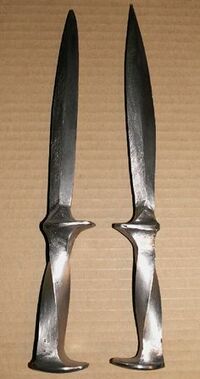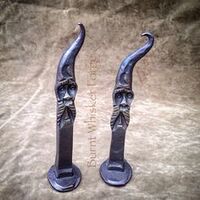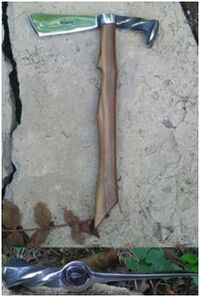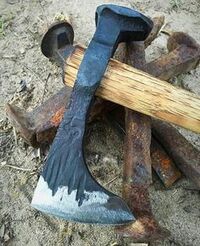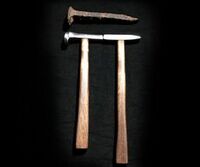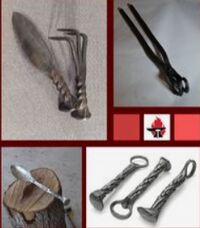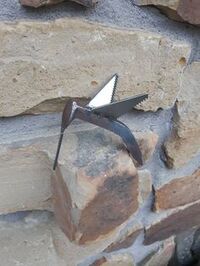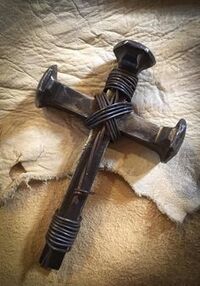Difference between revisions of "All Aboard!"
| Line 55: | Line 55: | ||
Calgary, Alberta – 68-hectare (168-acre) Alyth Yard; handled 2,200 cars daily. Franklin Park, Illinois – Bensenville Yard. Montreal, Quebec – St. Luc Yard. Flat switching. St. Paul, Minnesota – Pig's Eye Yard / St. Paul Yard. Toronto, Ontario – Toronto Yard (also known as "Toronto Freight Yard or Agincourt Yard"). Winnipeg, Manitoba – Rugby Yard (also known as "Weston Yard"). | Calgary, Alberta – 68-hectare (168-acre) Alyth Yard; handled 2,200 cars daily. Franklin Park, Illinois – Bensenville Yard. Montreal, Quebec – St. Luc Yard. Flat switching. St. Paul, Minnesota – Pig's Eye Yard / St. Paul Yard. Toronto, Ontario – Toronto Yard (also known as "Toronto Freight Yard or Agincourt Yard"). Winnipeg, Manitoba – Rugby Yard (also known as "Weston Yard"). | ||
Off right-of-way power sites include hotels. During the late 19th century, the railway undertook an ambitious program of hotel construction to promote tourism and passenger ridership | Off right-of-way power sites include hotels. During the late 19th century, the railway undertook an ambitious program of hotel construction to promote tourism and passenger ridership. The Canadian Pacific established a series of first class hotels. These hotels became landmarks famous in their own right. They include the Algonquin in St. Andrews, Château Frontenac in Quebec, Royal York in Toronto, Minaki Lodge in Minaki Ontario, Hotel Vancouver, Empress Hotel in Victoria and the Banff Springs Hotel and Chateau Lake Louise in the Canadian Rockies. | ||
==Blockage Removal== | ==Blockage Removal== | ||
Revision as of 12:53, 24 May 2024
This metaplot revolves around awakening vehicle spirits for the purpose of covert travel. My focus is on train and ship spirits, aircraft spirits don't strike my fancy. GMs that wish to incorporate them can do so and runs in opposition to metaplot goals are welcome.
Factions
Canadian Pacific Ghost Train https://shreloaded.net/wiki/Canadian_Pacific_Ghost_Train
Blazing Swords https://shreloaded.net/wiki/Blazing_Swords
Imagination Foundation https://shreloaded.net/wiki/Imagination_Foundation
Edelweiss Pirates https://shreloaded.net/wiki/Edelweiss_Pirates
Important Members
Canadian Pacific Ghost Train https://shreloaded.net/wiki/Canadian_Pacific_Ghost_Train
Carleton Moreau - Edelweiss Pirates, Blazing Swords, Ottawa-Gatineau https://shreloaded.net/wiki/Carleton_Moreau
Raquel Domage - Blazing Swords, Rossi Mafia Family, Montreal https://shreloaded.net/wiki/Raquel_Domage
Alain "Al" Levant - Imagination Foundation, Violi Mafia Family, Toronto/Hamilton https://shreloaded.net/wiki/Alain_%22Al%22_Levant
Goals
Awakening and Cultivating Vehicle Spirits around the Globe for the purpose of covert travel. The first is the Canadian Pacific Ghost Train generated by the completion of the transnational railway in 1885. The Orient Express and The Flying Scotsman are my next targets. A Union Pacific Ghost Train generated by the completion of the transnational railway in the United States is a plausible project as well.
Canadian Pacific Ghost Train Goals
Last Spike Artifacts
The circumstance of the CPR's last spike ceremony led several spikes to assume the honor of being the "last spike". In contrast to the ceremonial gold or silver final spikes often used to mark the completion of other major railways, the CPR's "last spike" was a conventional iron spike identical to the many others used in the construction of the line. A silver spike had been created for the Governor General, the Marquess of Lansdowne, who was to be present at the ceremony, but he was forced by poor weather to return with the spike to Ottawa, Ontario. The silver spike remained with the Van Horne family until 2012, when they donated it, along with other artifacts, to the Canadian Museum of Civilization in Gatineau, Quebec.
The symbolic iron spike driven by Donald Smith, Baron Strathcona and Mount Royal, was badly bent as he pounded it into the railway tie. Roadmaster Frank Brothers extracted the spike and it was given to Smith as the "last spike". Smith had the bent spike straightened and cut several strips of iron from it, which were fashioned to appear as miniature railway spikes mounted with 13 diamonds and a circular piece of the original spike at the center. These were presented to the wives of some of the party assembled at Craigellachie. This spike was later donated to the Canada Science and Technology Museum in Ottawa and is on long-term loan to the Canadian Museum of Immigration at Pier 21 in Halifax, Nova Scotia, where it is displayed as a tribute to the immigrant railway workers who were critical to the railway's construction.
Smith later used another iron spike, usually called "the ordinary" or "fourth spike", to provide iron to make symbolic jewelry for the wives of other officials. With this iteration, he made the strips larger to distinguish these souvenirs from the original brooches. Four of the pins are known to exist today. That which was presented to the railways' president, George Stephen, was donated to Canada's Crown Collection by one of Stephen's descendants. The governor general or the viceregal consort will wear the Crown Collection's pin for special events, signifying an event that helped tie the young country together.
The second last spike, which Smith successfully drove into the tie, was removed from the track shortly after the ceremony to prevent theft by souvenir hunters. A regular spike was inserted in its place. This spike was given to the son of the patent office president at the time and is still in the family's possession, fashioned into the shape of a carving knife.
Railroad Momentos
Clearing Power Sites
Under the initial contract with the Canadian government to build the railway, the CPR was granted 100,000 square kilometres (25 million acres). Some of this land constituted the right-of-way and facilities. Much of it was sold to immigrants as a funding mechanism. Canadian Pacific began an intense campaign to bring immigrants to Canada; its agents operated in many overseas locations, where immigrants were often sold a package that included passage on a CP ship, travel on a CP train and land sold by the CP railway. Land was priced at $2.50 an acre and up but required cultivation. To transport immigrants, Canadian Pacific developed a fleet of over a thousand Colonist cars, low-budget sleeper cars designed to transport immigrant families from eastern Canadian seaports to the west.
There are a number of power sites relevant to the Ghost Train, major facilities along the right-of-way and facilities developed off of the right-of-way by the Canadian Pacific Railway.
CP owned a large number of large yards and repair shops across their system, which were used for many operations ranging from intermodal terminals to classification or marshaling yards. Hump yards work by using a small hill over which cars are pushed, before being released down a slope and switched automatically into cuts of cars, ready to be made into outbound trains. Most of these yards were closed in 2012 and 2013.
Calgary, Alberta – 68-hectare (168-acre) Alyth Yard; handled 2,200 cars daily. Franklin Park, Illinois – Bensenville Yard. Montreal, Quebec – St. Luc Yard. Flat switching. St. Paul, Minnesota – Pig's Eye Yard / St. Paul Yard. Toronto, Ontario – Toronto Yard (also known as "Toronto Freight Yard or Agincourt Yard"). Winnipeg, Manitoba – Rugby Yard (also known as "Weston Yard").
Off right-of-way power sites include hotels. During the late 19th century, the railway undertook an ambitious program of hotel construction to promote tourism and passenger ridership. The Canadian Pacific established a series of first class hotels. These hotels became landmarks famous in their own right. They include the Algonquin in St. Andrews, Château Frontenac in Quebec, Royal York in Toronto, Minaki Lodge in Minaki Ontario, Hotel Vancouver, Empress Hotel in Victoria and the Banff Springs Hotel and Chateau Lake Louise in the Canadian Rockies.
Blockage Removal
Plausible sites include national and extra-territorial borders.
Ship Spirits
In 1884, CPR began purchasing sailing ships as part of a railway supply service on the Great Lakes. Over time, CPR became a railway company with widely organized water transportation auxiliaries including the Great Lakes service, the trans-Pacific service, the Pacific coastal service, the British Columbia lake and river service, the trans-Atlantic service and the Bay of Fundy Ferry service.
Once the railway was completed to British Columbia, the CPR chartered and soon bought their own passenger steamships as a link to the Orient. These sleek steamships were of the latest design and christened with "Empress" names (e. g., RMS Empress of Britain, Empress of Canada, Empress of Australia, and so forth). Travel to and from the Orient and cargo, especially imported tea and silk, were an important source of revenue, aided by Royal Mail contracts. This was an important part of the All-Red Route linking the various parts of the British Empire.
The other ocean part was the Atlantic service to and from the United Kingdom, which began with acquisition of two existing lines. These two segments became Canadian Pacific Ocean Services (later, Canadian Pacific Steamships) and operated separately from the various lake services operated in Canada, which were considered to be a direct part of the railway's operations. These trans-ocean routes made it possible to travel from Britain to Hong Kong using only the CPR's ships, trains and hotels. CP's 'Empress' ships became world-famous for their luxury and speed. They had a practical role, too, in transporting immigrants from much of Europe to Canada, especially to populate the vast prairies.
Runs
| Name | GM | Date | Runners |
|---|---|---|---|
| Murders on The Orient Express | Villiers | 15 December 2085 | Delphi Thunder Lady Argentum Alkali |
| The Empress of Ireland Part 2 | Villiers | 7 July 2085 | Funk Thunder Trades Neijing JailCoat |
| The Empress of Ireland Part 1 | Villiers | 29 June 2085 | Trashcan Pete Funk Glitch Neijing |
| The Empress of China Part II | Villiers | 23 June 2085 | Funk Thunder Nearl Trades |
| The Empress of China Part I | Villiers | 7 June 2085 | Thunder String King Ardent |
| Ghost Train Part 2 | Villiers | 2 June 2085 | Funk Ryuuji Trades |
| Ghost Train Part 1 | Villiers | 28 April 2085 | Funk Ty Vallynn Thunder Trades |
News
| Name | Date |
|---|---|
| Horizon Commercial News Chyron | 30 June 2085 |
| Vatican Announces Negotiations with SSC | 8 June 2085 |
| Haunted War Games | 3 June 2085 |
| Annual War Games Announced | 1 June 2085 |
| Blinded Justice | 29 May 2085 |
| John Overton Killed in His Sleep | 29 May 2085 |
| Memorial Ceremony | 29 May 2085 |
| Battle of the Sexes Motard style | 29 May 2085 |
